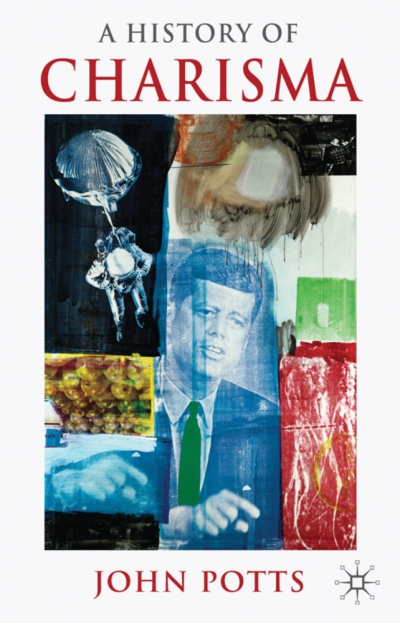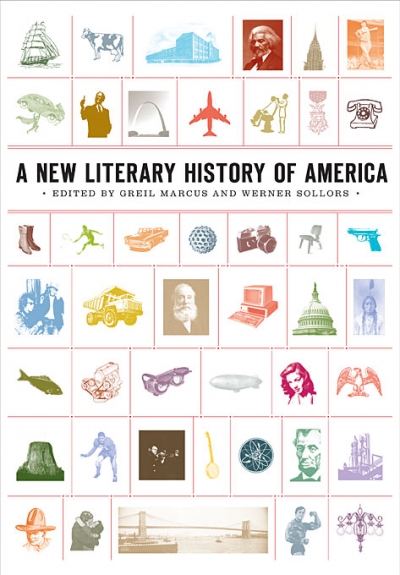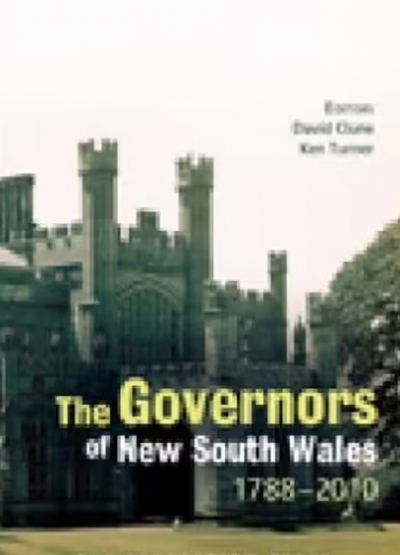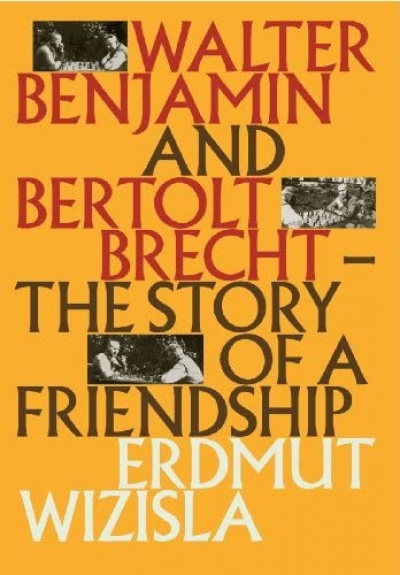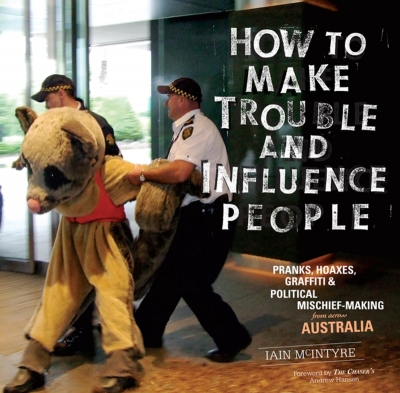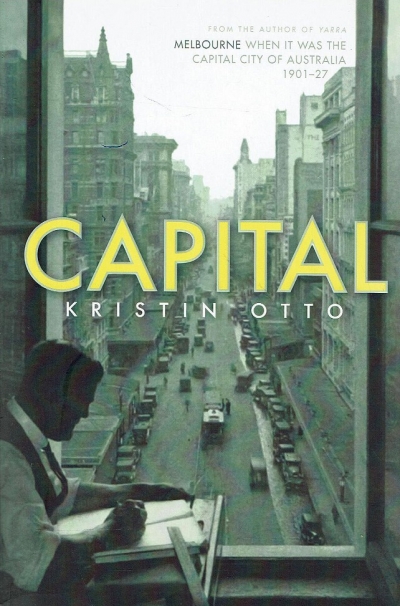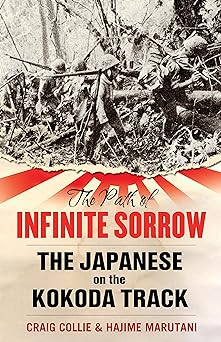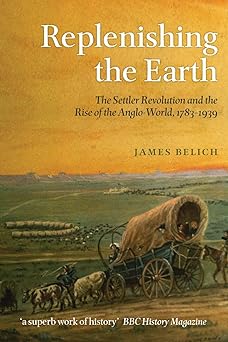History
Nothing, it seems, is too small to have its own history. As academic disciplines such as the history of ideas have grown and prospered, popular non-fiction has followed suit, offering the history of a word, a concept, a technology. This has proven to be a highly effective method of opening up the processes of culture for closer inspection, and for revealing the contingent or motivated roots of what we now take for granted. It has become an appealing and often lively way to write cultural histories.
... (read more)A New Literary History of America edited by Greil Marcus and Werner Sollors
Cynthia Ozick’s most recent collection of criticism, The Din in the Head (2006), contains a brief but engaging essay called ‘Highbrow Blues’. It begins with her musing about a gaffe made by Jonathan Franzen following the publication of The Corrections (2002). Oprah Winfrey had selected Franzen’s novel for her televised book club, which was popular enough to turn any work she chose into a bestseller, but Franzen was uncomfortable with her program’s folksiness. He felt that the club’s reputation for featuring works of middlebrow fiction did not fit with his literary ambitions and that an appearance on the Oprah Winfrey Show was not likely to enhance his credibility. ‘I feel,’ he explained, ‘like I’m solidly in the high-art literary tradition.’ Brickbats flew from all directions. But why, wonders Ozick, did Franzen’s remark seem so jejune?
... (read more)The Governors of New South Wales 1788–2010 edited by David Clune and Ken Turner
A couple of anniversaries explain the occasion of this collection: one hundred and fifty years of responsible government in New South Wales, and the bicentenary of Lachlan Macquarie’s arrival as the governor who, Brian Fletcher argues, has had the most ‘persistent hold over public consciousness’ in reflecting the ambiguities of a convict colony. The volume is framed by Rod Cavalier’s foreword, which encourages a sequential reading of these thirty-seven essays, each part-biographical study of a governor and part-analysis of the evolving office. Such a course, Cavalier suggests, will show the position to be no sinecure but a ‘constant’ in the flux of politics. Even so, as civics tests regularly show, it is a position in need of rehabilitation if it is to rise above being a misunderstood curiosity.
... (read more)Walter Benjamin and Bertolt Brecht: The Story of a Friendship by Erdmut Wizisla, translated by Christine Shuttleworth
German commentators have often asserted – not without some justification – that passages of the established Schlegel-Tieck translation of Shakespeare are superior to the original. A contentious proposition, perhaps. But in the case of the volume under review, which first appeared in German in 2004, there is no doubt that although, as the publisher’s note points out, ‘a section devoted to a discussion on the debate … about the initial republication and publication of Walter Benjamin’s work in Germany from the mid fifties’ has been omitted, the resulting book is clearer and more user-friendly than the original, with its arguments shown to better advantage. A chronology of the Benjamin-Brecht relationship (relocated more sensibly at the front of the book), plus a map and time chart of the two writers, make it easier to refer back to the stages and dates of the relationship, along with – so crucial to an understanding of the course of the friendship and temper of the debates between the two principal participants, as well other involved contemporaries – the stations of the exile years between 1933, 1941 (Benjamin’s death), and 1947 (Brecht’s return to Europe).
... (read more)How to Make Trouble and Influence People: Pranks, hoaxes, graffiti & political mischief-making by Iain McIntyre
Poor communication has long been activism’s Achilles heel. Engaging the wider populace and influencing opinion rely as much on the effective, reliable delivery of a message as on well-organised ideas and events. We may be loath to admit it, but intelligent public relations can aid any pursuit – advocatory, activist, or otherwise.
It is from this perspective that the expansive new publication How to Make Trouble and Influence People: Pranks, hoaxes, graffiti & mischief-making takes its cue. Compiled and written by Melbourne writer, zine-maker, and community radio presenter Iain McIntyre, this vividly illustrated volume documents not only an unofficial history of Australian protest, activism, and all-round cheek, but the connections between political trouble-making and its ability to influence popular opinion. It succeeds, for the most part.
... (read more)Capital: Melbourne when it was the capital city of Australia 1901–1927 by Kristin Otto
Academic historians only took to urban history in any systematic way during the 1970s, but Melbourne, regardless of what historians might have had to say about it, has always had a strong sense of its own identity and culture. In the heyday of 1880s ‘Marvellous Melbourne’, journalist Richard Twopeny saw the city as representing ‘the fullest development of Australian civilisation, whether in commerce or education, in wealth or intellect, in manners and customs – in short, in every department of life’. English historian J.A. Froude, staying in style as a guest at Government House, saw Melbourne people as having ‘boundless wealth, and as bound-less ambition and self-confidence’; they were ‘proud of themselves and of what they have done’.
... (read more)How to Write History That People Want to Read by Ann Curthoys and Ann McGrath & Voice and Vision by Stephen J. Pyne
‘Real solemn history, I cannot be interested in’, declared Jane Austen, and so too do a number of Australian publishers. It is a commonplace that historians do not know how to write, except to each other in ways that put other readers to sleep. The first advice to the author of any newly minted doctoral dissertation preparing a book proposal is to eliminate all reference to the thesis. The starting point in any of the non-fiction writing programs offered at universities is to purge their manuscript of academic diction. ‘Sadly’, Ann Curthoys and Ann McGrath begin their advice book on the subject, ‘historical writing has quite a bad reputation’.
... (read more)The Path Of Infinite Sorrow: The Japanese On The Kokoda Track by Craig Collie and Hajime Marutani
Not surprisingly, publishers often claim that their latest offering takes the reader down a path never before trodden, to reveal new insights and understandings of well-worn topics and events. The Path of Infinite Sorrow is no exception, with the promise of a ‘whole new perspective’ on the Japanese side of the story of the Kokoda campaign in Papua during the early stages of World War II. In recent years, the status of Kokoda has challenged that of Gallipoli in the national consciousness, with a number of lengthy tomes, guidebooks, journal articles and newspaper articles, not to mention a feature movie, devoted to the campaign. But why another book, and does it offer anything new?
... (read more)Rivers and Resilience: Aboriginal People On Sydney’s Georges River by Heather Goodall and Allison Cadzow
This is a celebration of Aboriginal survival on the Georges River, a river which snakes through the south-western suburbs of Sydney and disgorges into Botany Bay.
... (read more)Replenishing The Earth: The Settler Revolution And The Rise Of The Anglo-World, 1783–1939 by James Belich
It is always a pleasure to sit down with a fat book by New Zealand historian James Belich. He writes with verve and takes a big-picture view of the past, giving you plenty to think about and, better still, much to argue with. Until lately he has been mainly known for his fine-grained histories of New Zealand and its Maori Wars. Now he ascends to the stratosphere for an Olympian survey of white folks pouring in astonishing numbers into the newly accessible regions of Australasia, Africa, Siberia and the Americas during the nineteenth century. From this exalted perspective they look like nothing so much as a great swarm of bees diverging into several different streams in search of new hives. There had been nothing like this concentrated great voluntary migration in the history of mankind.
... (read more)
